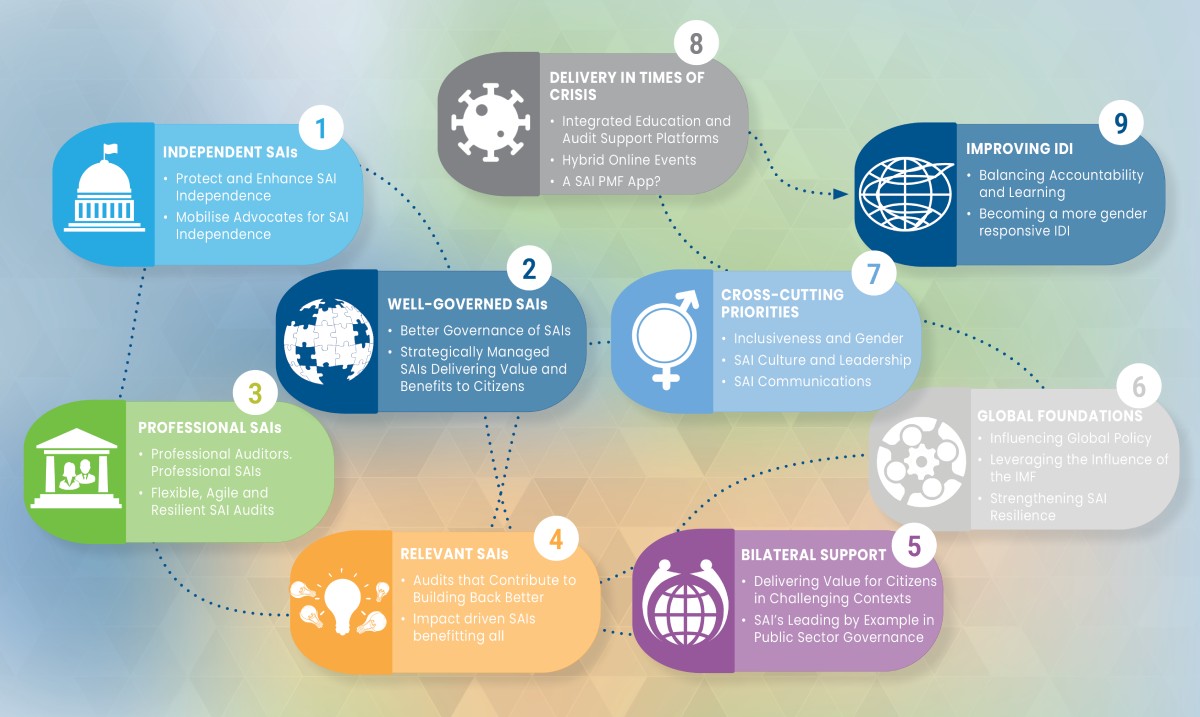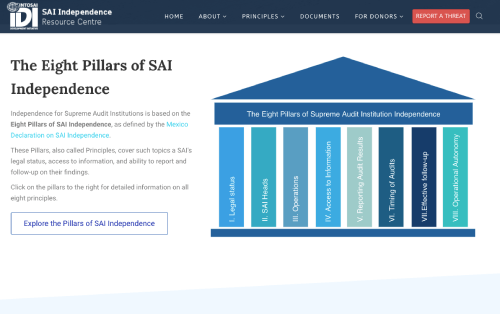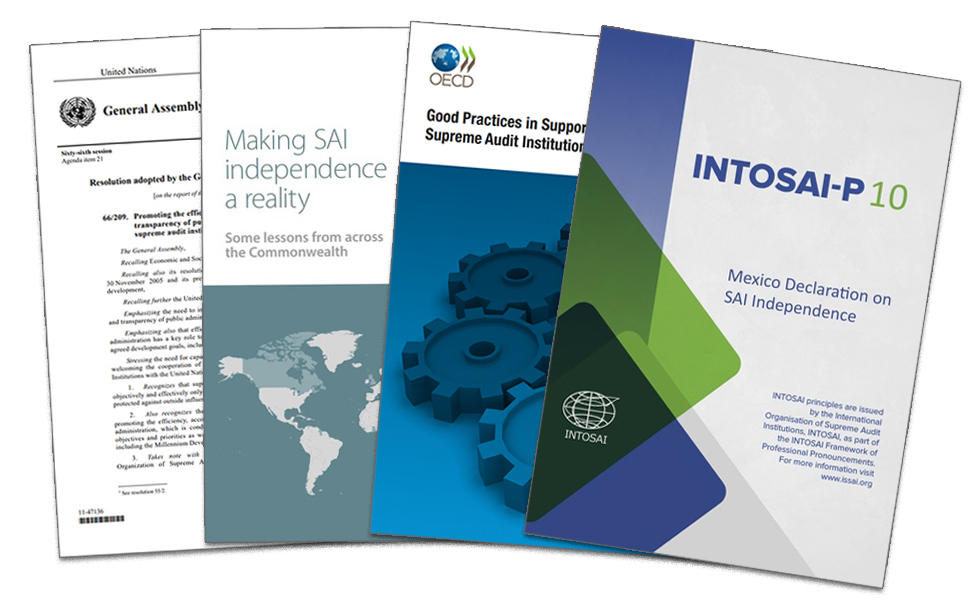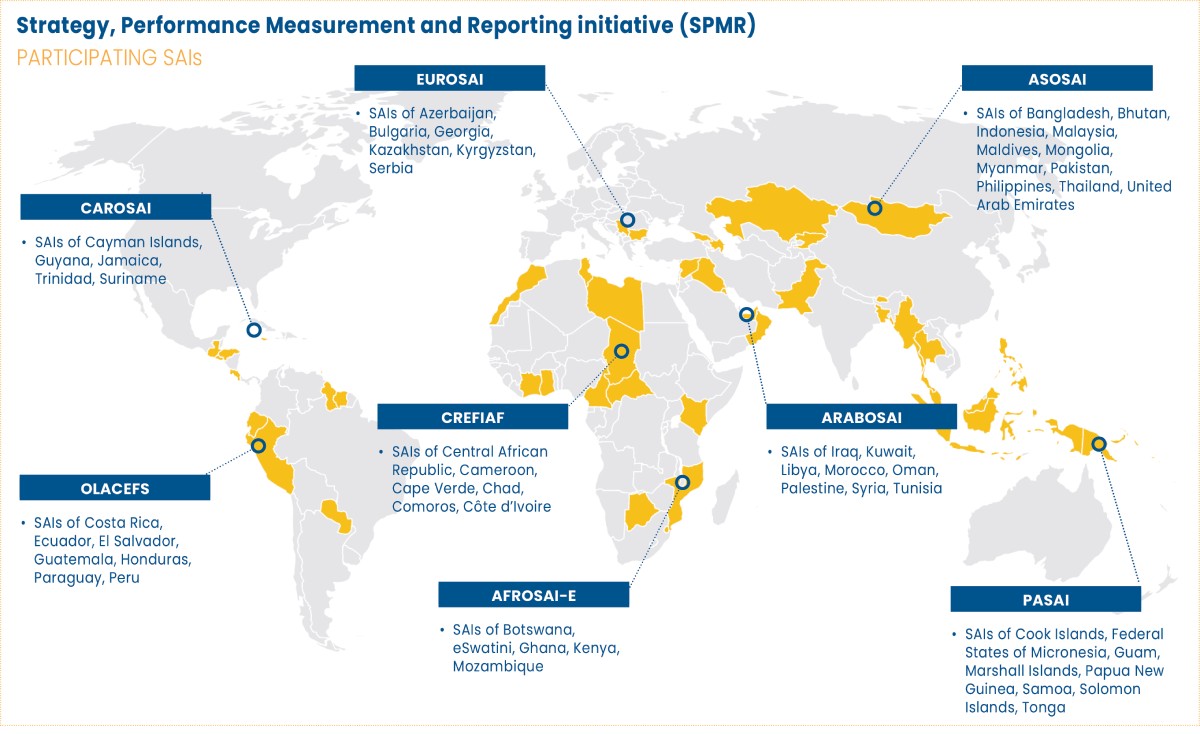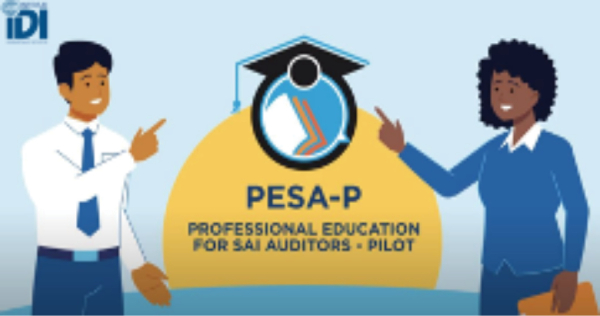IDI Operational Plan 2021
Highlights
From the Director General’s Desk
COVID-19 has radically transformed the world and affected us all. As Governments try to balance emergency response and economic recovery, the need for transparency, accountability and inclusiveness in public spending is stronger than ever before.
The crucial role of Supreme Audit Institutions (SAIs) worldwide has never been clearer, and expectations of SAIs are higher than ever. Yet, SAIs around the world have also been deeply affected, torn between heightened demand for accountability and oversight in crises, and challenges in terms of ensuring business continuity, staff safety and curbs to their independence, mandate and resources.
At the IDI we have enhanced and adapted our support to SAIs throughout this crisis, quickly adapting our service delivery model and portfolio of capacity development initiatives to the New Normal and emerging SAI needs. This has been made possible by the efforts of our staff who have demonstrated resilience and innovation, and the valuable support from our many partners both within and outside INTOSAI.
In 2021 we will continue to stay true to the principles that underpin our approach and identity, such as working together, staying true to quality, being demand driven, advancing on gender equality and leaving no one behind. At the same time, we will accept uncertainty, scan horizons and do scenario planning, continue to build our resilience, agility and flexibility, and strengthen our online work and communication.
The IDI remains committed to both support the critical role of SAIs during the pandemic by supporting government response through transparency, accountability and sound PFM, as well as supporting SAIs in the post COVID-19 era in making a contribution to the rebuilding efforts, crisis preparedness and in contributing to "building back better" towards a more inclusive and prosperous future.
We will support SAIs in adapting to the New Normal by amongst others supporting them in ensuring that their audits are relevant in the New Normal, through enhancing ICT and connectivity, leveraging technology and communicating effectively with stakeholders via electronic media.
It is my firm belief that strong and effective SAIs are more important than ever in the current context, and I am very much looking forward to working with all our partners to further strengthen Supreme Audit Institutions for the benefit of all in 2021.


Global Support, Global Impact
IDI will support SAIs across the world through global, regional and country level initiatives.
140+ SAIs
committed to participating in IDI initiatives
200+ SAI teams
will be supported to build sustainable capacity and 20+ long-term capacity development initiatives will be delivered to enhance capacity across six SAI strategic priority areas
4 SAIs
will be provided holistic, SAI-level support through long-term partnerships and 7 further will be provided strategic support to secure long-term partnerships with other providers
2,000+ SAI staff
will be supported to enhance their professional capacity
4 flagship initiatives
responding to the global COVID-19 pandemic
10+ SAIs
will be supported to integrate elements of inclusiveness and gender in their audits and/or strategic plans
20+ SAIs
in fragile and conflict affected situations will participate in IDI initiatives
7 Strategic Partnerships
working together to strengthen public external audit and 6 Peer SAIs will partner with IDI to provide support to SAIs
WHY SAIs, AND HOW IS IDI HELPING
People expect their governments to manage public funds effectively, transparently and inclusively. Independent and effective Supreme Audit Institutions (SAIs) hold their governments to account for it.
Through their work, SAIs contribute to good governance, improved service delivery, strengthened state-society relations, fighting corruption and sustainable development. SAIs also play a pivotal role in holding their governments to account for achievement of national outcomes linked to SDGs and for advancing on gender equality. As governments implement large-scale responses to the COVID-19 pandemic, SAIs, more than ever, matter as strongholds of accountability, transparency and inclusiveness.
So, how is IDI supporting SAIs in doing their work?
SAIs across the globe face many challenges in strengthening their capacities and performance to deliver value and benefits for everyone. Many SAIs operate in constrained environments where basic systems of transparency and accountability are lacking.
The different challenges and needs of SAIs are the basis for IDI’s engagement. IDI seeks to add value by delivering its support to SAIs through four work streams. These are focused on supporting independent, well-governed, professional and relevant SAIs. In addition, through IDI’s bilateral support, IDI provides deeper and more extensive support for challenged SAIs. The aim is to support SAIs in sustainably developing capacities and performance and to ensure no SAI is left behind. IDI’s activities under Global Foundations strengthen the global environment in which support to SAIs is provided.
IDI has three cross-cutting priorities that contribute to its mission to sustainably enhance performance of SAIs in developing countries: SAI culture and leadership, SAI communications and stakeholder management, inclusiveness and gender. They are embedded in IDI’s work streams, bilateral support and Global Foundations.
Over the years, IDI has developed its own unique and successful ways of working with SAIs. These include using a facilitative approach, leaving no one behind, using a gender lens, providing needs-based and peer support, working in partnerships, widely consulting with stakeholders and continual learning.
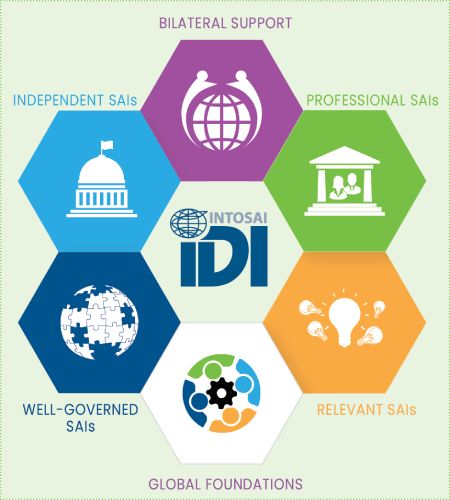
How has COVID-19 impacted SAIs and IDI?
The COVID-19 pandemic has impacted SAIs across the globe, though in very different ways. At one end of the spectrum, SAIs have faced attempts by the executive to diminish their role in audit and oversight, as executive bodies seek to consolidate power. More commonly, SAIs, like other sectors, have faced temporary closures, home working and restrictions in their ability to access audited entities and audit records, and communicate effectively. These challenges are particularly acute in countries with lower levels of internet reliability and digitalisation of government services, while in other countries a switch to home working and remote audit have been manageable. The crisis has focused attention on the importance of ICT and digitalisation across governments, and within SAIs.
COVID-19 has fundamentally altered government priorities and spending, the risks of non-compliance and poor services delivery, and stakeholder expectations of auditors. While some SAIs immediately adjusted their plans in response, others have faced internal and external challenges in doing so.
IDI has been affected in two primary ways. First, the direct impact on how IDI operates, which was minimised due the prior investment in remote working and digital education systems. Secondly, because the needs of SAIs have changed, both in terms of their priorities and how they access support. IDI has launched several flagship initiatives in direct response to COVID-19 - as documented throughout this plan - and will continue to implement these through 2021.
COVID-19 has also shown the importance of flexible and agile delivery mechanisms. IDI will continue to implement and adapt to the new normal as it prepares to build back better.
IDI Key Performance Indicators
IDI's Operational Plan includes a robust results framework to measure and report on progress. A selection key indicators, and targets for the end of 2021 are:
Global Outreach
Relevant SAIs
Independent SAIs
Bilateral Support
Well-Governed SAIs
Global Foundations
Published
Professional SAIs
Inclusiveness and Gender
2021 Highlights

Independent SAIs
WORK STREAM

Protect and Enhance SAI Independence
Continuous monitoring and agile advocacy to maintain SAI independence
Independence is crucial for effective and credible SAIs. Yet the more effective SAIs become, the more vested interests have to gain from undermining their independence.IDI has already established the SAI Independence Rapid Advocacy Mechanism (SIRAM) to react when SAI independence is threatened.
In 2021, we will make this more proactive through the establishment of a continuous monitoring function to identify trigger events and windows of opportunity. This will put us in a better position to provide more effective advocacy support on SAI Independence by engaging with the relevant stakeholders in a more agile and timely manner. This shift will lead to more SAIs being supported and greater impact.
Mobilise Advocates for SAI Independence
Create and disseminate knowledge on SAI independence to stakeholders in a digitized environment
Diverse stakeholder groups at the country, regional and global levels all recognise and support the fundamental importance of SAI independence and the contribution it can make to better public services and people’s lives. These stakeholders share IDI’s goals. Yet they often lack easy access to targeted advocacy materials on SAI independence which could make their work more effective.
In 2021, we will focus on strengthening our capacity to advocate in a digitised environment through the development of targeted advocacy material accessible on the SAI Independence Resource Centre (SIRC) and disseminated through various channels including social media. Advocacy tools such as the SAI Independence Resource Kit for In-Country Donor Staff will also be adapted to different audiences including parliamentarians and Civil Society Organisations. Ultimately leveraging on technology and reaching out to a broader group of stakeholders will support the establishment of more powerful and nimble coalitions for SAI Independence.

Well-Governed SAIs
WORK STREAM
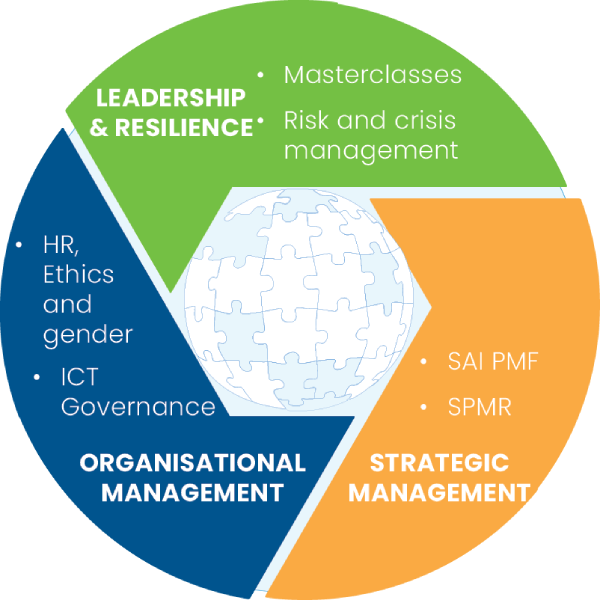
Better Governance of SAIs
Modern and adaptive SAIs drive public sector transformation
SAIs, like other public sector institutions, have faced unforeseen challenges due to the Coronavirus pandemic in 2020. They have had to accelerate their digitalisation and communication processes, while at the same time managing significant disruptions to their operations and staff. Other transformations, like enhanced gender equality, have not become less pressing to SAIs. To react to these emerging challenges, in 2021 IDI will roll-out two new components in the well-governed SAIs workstream: Organisational Management, focusing on ICT Governance, as well as and Human Resources, Ethics and Gender: and Leadership and Resilience.
In the second component, we will organise masterclasses for SAI leadership on key topics of interest, led by renowned experts with the aim of enhancing institutional foresight. We will also support SAIs in becoming more resilient to emerging risks by establishing modern risk and crisis management frameworks and practices. We will pilot support for risk and crisis management, and ICT management, with a limited number of SAIs in 2021, preparing for the delivery of broader support in 2022.
Strategically Managed SAIs
Strategically managed SAIs delivering value and benefits to citizens
Expectations towards public sector institutions are high. Citizens expect effectiveness, accountability, transparency and inclusiveness – attributes that SAIs need to fulfil themselves if they want to be regarded as model institutions.
This calls for enhanced strategic management of SAIs, including: the holistic assessment of performance; realistic and prioritised strategic plans that consider stakeholders’ views and emerging issues; properly resourced operational plans; strong strategic decisionmaking processes based on reliable performance information; and transparent performance reporting.
By the end of 2021, our Strategy, Performance Measurement and Reporting initiative (SPMR) will have supported more than 20 SAIs to develop strategic plans based on a holistic assessment of performance and an analysis of their stakeholders. At least 15 of these SAIs will have developed holistic operational plans and be monitoring and publicly reporting on their performance against their plans. These SAIs will act as models for good governance in the INTOSAI community and the public sector of their countries. IDI will also broaden its strategic management support to further SAIs based on their demand.

Professional SAIs
WORK STREAM
Professional Auditors. Professional SAIs
How does a SAI build the competency of its staff?
A professional workforce is the backbone of a professional organisation. The primary purpose of the PESA-P (Professional Education for SAI Auditors-Pilot) is to provide a high-quality professional education for SAI auditors. The initiative will pilot the INTOSAI Competency Framework for SAI Auditors and provide a scalable solution for education. In 2021 PESA-P will be launched for 600 SAI auditors from the financial, performance and compliance audit disciplines using the IDI integrated education and initial professional development audit support framework.
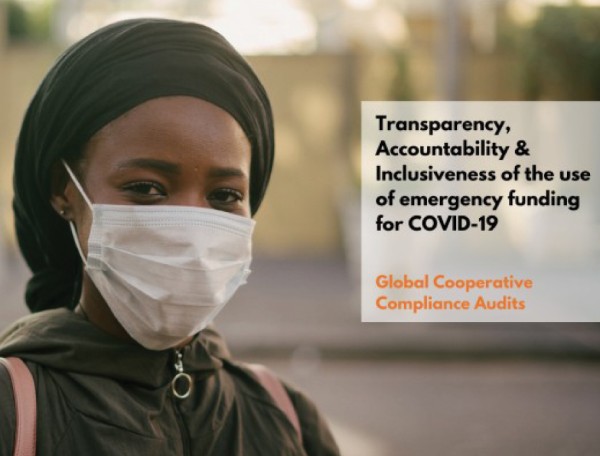
Read more about the TAI audit in the concept note here
Flexible, Agile and Resilient SAI Audits
How do SAIs stay relevant and deliver value during COVID-19?
IDI’s global cooperative compliance audits on the Transparency, Accountability and Inclusiveness of the Use of Emergency Funding for COVID-19 (TAI audits) provides SAIs across INTOSAI regions a flexible and fit for purpose solution for conducting and reporting on TAI audits. TAI audits are planned as ISSAI based compliance audits. SAIs will have the option of using agile audit and/or remote audit techniques. However, these audits can also be conducted by SAIs where the local context and capacities may not allow for use of such techniques. In the near future these audits will contribute to transparency, accountability and inclusiveness in the use of emergency funding for COVID-19.
Longer term, SAI recommendations from these audits could contribute to setting up of more transparent, accountable and inclusive frameworks for public spending during emergencies. About 40 SAIs are expected to join the TAI audits. Delivery will be flexible to accommodate the challenging needs and evolving environment in each country.

Relevant SAIs
WORK STREAM

Audits that Contribute to Building Back Better
How do SAIs contribute to building back better and the implementation of the 2030 Agenda?
IDI’s Audit of SDGs implementation initiative promotes and supports SAI’s role as independent external oversight agencies contributing to the 2030 Agenda. IDI’s SDGs Audit Model (ISAM) provides practical guidance to SAIs building strategic audit portfolios and conducting audits of individual national targets linked to SDG targets.
IDI is currently piloting ISAM by supporting 170 auditors from 55 SAIs from across INTOSAI regions. This includes conducting audit of strong and resilient national public health system (linked to SDG 3.d) for 40 SAIs; Cooperative audit of sustainable public procurement (linked to SDG 12.7) for 14 SAIs in Latin America; audit of elimination of intimate partner violence against women (linked SDG 5.2) for SAI Uganda. The support model for these audits include innovative mechanisms like use of data analytics, integrated education and audit support framework, and support for facilitating audit impact.
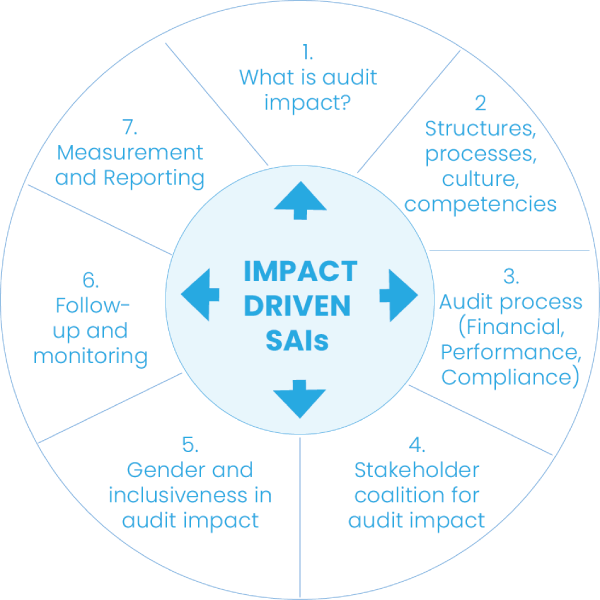
Impact driven SAIs Benefitting All
What does it take for audit to make a difference to people’s lives?
IDI’s vision with the Facilitating Audit Impact initiative is impact driven SAIs. Recognising that audit quality alone is not enough, IDI will take one step further in its support to SAIs with the FAI initiative. In working towards this vision, IDI will assist SAIs in development of systems, structures, processes, culture and competencies to make SAIs’ audit impact contribute to build a better planet.
Additionally, building stakeholder coalitions and focusing on measurement and reporting are keys to realise the vision of impact driven SAIs. In 2021, IDI will work on a framework to facilitate audit impact to support SAIs in contributing to audit impact through seven dimensions.

Bilateral Support
WORK STREAM
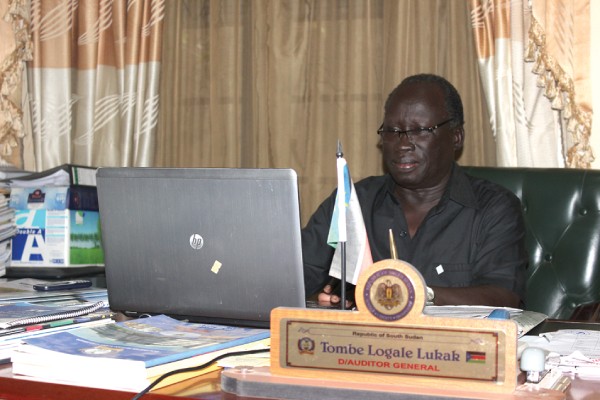
Delivering Value for Citizens
SAIs reporting on issues of national importance in challenging contexts
Our bilateral support is targeted towards SAIs operating in the most challenging contexts, and countries where other INTOSAI providers are not present. We will support these SAIs to deliver new audits on topics of high national importance in 2021. The SAIs of The Gambia and Madagascar will be supported to conduct compliance audits of the use of COVID-19 emergency funds. SAI Somalia will conduct their first audit on a selected ICT-system used by Government. In South Sudan, the National Audit Chamber (NAC) will be supported to audit key areas listed in the peace agreement, and to present a consolidated compliance audit report to the Parliament and President. This will be an important step in contributing to nation building in South Sudan by contributing to the implementation of the peace agreement and keeping public institutions accountable for their actions in the past.
No SAI Left Behind
Long-term support established for SAIs in challenging contexts
In SAI development, like many other areas of development, those most in need of support are also those least able to access and take advantage of support. Back in 2016-17, IDI supported the INTOSAI-Donor Cooperation to establish the Global Call for Proposals – Tier 2 as a mechanism to help the furthest behind first, in the SDG spirit of leaving no-one behind. Nine SAIs from across Africa were identified and confirmed their need for support. IDI, AFROSAI-E and CREFIAF established the Accelerated Peersupport Partnership (PAP-APP) to help these SAIs mobilise holistic, SAI-led and longterm support for sustainable performance improvement. By the end of 2021, the PAPAPP hopes to have mobilised financial and technical support for all nine SAIs, enabling them to implement key strategic priorities for the benefit of their societies.
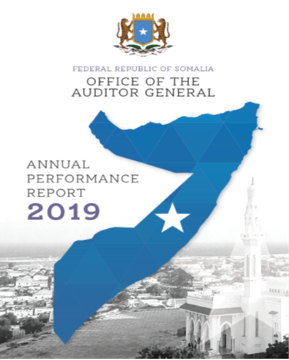
SAIs Leading by Example
SAIs in challenging contexts being role models by reporting on their performance
SAIs make a difference not only through their audit work, but by leading by example. Any SAI that intends to recommend Government agencies to strengthen their governance must have its own house in order first! Recognizing this, SAI strategic management is one of the key result areas for the bilateral support IDI and partners provide to SAIs in challenging contexts. In 2021 several of these SAIs will for the first time publish a report on their own performance. Performance reporting is a key element in being a role model for public institutions in a country and being credible in expecting transparency and accountability in the public sector.

Global Foundations
WORK STREAM
Influencing Global Policy
Global and regional snapshot of SAI environment and performance published
Once in a while, it is important to step back and ask the big questions. What are the most pressing challenges faced by SAIs globally? Are SAIs’ audit reports being scrutinised by Parliament, published and acted on by Governments? Are SAIs supressed by lack of independence from the bodies they audit? Do they have the resources to hold Governments to account and are they delivering high quality audit work? Has the money that IDI, and others, spent on strengthening SAIs improved SAI performance in a sustainable way? In 2021, IDI will publish the Global SAI Stocktaking Report, showing the state of SAIs globally and regionally, including comparisons to 2017.
Leveraging the Influence of the IMF
Partnership with the IMF to enhance audits on the use of emergency funds
During 2020, the IMF provided over US$ 29 billion in COVID-19 related emergency financing to 79 countries. More than ever before, a significant number of the IMF agreements with countries included audit commitments as a safeguard against misallocation and corruption. IDI welcomed the IMF’s focus on the important role of SAIs and in 2021 aims to maximise the IMF’s powerful leverage to strengthen SAIs. IDI will partner with the IMF through joint, IMF-led and IDI-led initiatives, which aim to bring the IMF and SAI community closer together. This will ensure these audit commitments deliver timely results, maintain and strengthen SAI independence, and contribute to more transparent, accountable and inclusive public services.
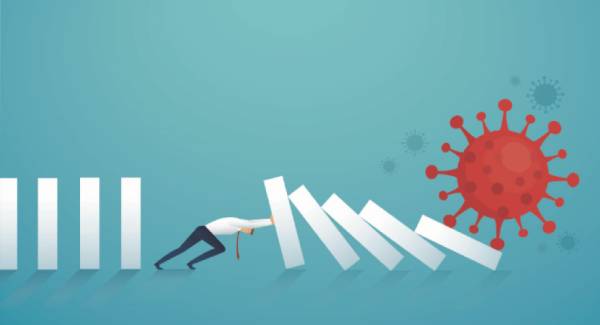
Strengthening SAI Resilience
Mobilising funds for SAI continuity and staff safety during COVID-19
COVID-19 has made technology for remote working and Personal Protective Equipment (PPE) for face to face working essential in all sectors. SAIs are no exemption, yet many SAIs lack the equipment and funding to enable them to continue their operations effectively and safely. In July 2020, IDI found that 76% of responding SAIs reported that their ability to operate was greatly affected as a result of COVID-19 and that their major challenge was ICT related. In response, IDI helped INTOSAI establish two temporary grant mechanisms so SAIs can access financial support to continue their operations and ensure staff safety whilst doing so. In 2021 IDI will help facilitate both the ‘INTOSAI SAI Continuity of Operations during COVID-19 grant’ and the ‘Saudi Fund for Improved SAI Performance (FISP) grant’, which will make $700,000 and $1 million available direct to SAIs.
Cross-Cutting Priorities
IDI will ensure the following cross-cutting priorities continue to be reflected through-out its work in 2021.

SAI Culture and Leadership
All SAI development is a change process. This requires committed and effective leadership, and a recognition that change cannot happen without understanding and working within the culture of an organisation. IDI initiatives across all work streams, bilateral support and Global Foundations engage with and support SAI leadership in change processes.

Inclusiveness and Gender
IDI’s vision is a world where SAIs are gender responsive, leave no one behind and benefit everyone. Thus, IDI’s ambition is to step up IDI engagement on gender and on supporting gender responsive SAIs across the IDI portfolio. Active collaboration with INTOSAI bodies, women’s organisations, such as UN Women, and other stakeholders, and piloting gender focused engagement in IDI will support the successful integration of a gender perspective in the SAI world.

SAI Communications and Stakeholder Management
To deliver value and benefits for all citizens, and to embark on successful change processes, SAIs need to be outwardfacing organisations, with a good understanding of their stakeholders.
Cross-Cutting Priorities
These cross-cutting priorities can be seen for example in IDI’s initiatives to support the elimination of intimate partner violence against women, and development of the next generation of SAI leaders.
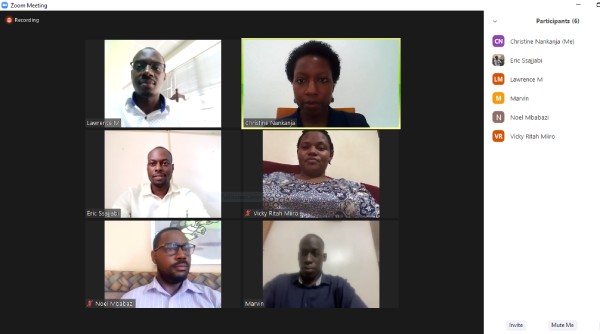
 Eliminating Intimate Partner Violence In Uganda
Eliminating Intimate Partner Violence In Uganda
How can SAI leaders demonstrate change processes in practice, including through communication and stakeholder management related to gender and inclusiveness?
IDI support to a pilot performance audit on Elimination of Intimate Partner Violence (EIPVW) linked to SDG 5.2.1 in Uganda.
Partnering with SAI Uganda, IDI will work to further strengthen and pilot extensive SAI communication and stakeholder engagement activities as an integral part of all work related to this audit of SDG Implementation. It will start with stakeholder mapping and interaction with relevant stakeholders and related communication activities even prior to the planning phase of the audit. The initial communication and stakeholder engagement will build stakeholder coalitions to facilitate communication throughout the audit. Moreover, drawing up a communication plan that includes stakeholder communication is also a necessary step for ensuring stakeholder management and attention to facilitating audit impact are mainstreamed once the audit starts. In early 2021, SAI Uganda will, with the support of IDI, conduct this audit, with a communication plan readily available to support and ensure SAI communication and stakeholder management takes place in all phases of the audit, including follow-up of audit recommendations.
 Developing Tomorrow’s Leaders
Developing Tomorrow’s Leaders
Effective leadership may be the most crucial factor for successful SAI reform. As well as engaging with and supporting current SAI leaders through all our initiatives, since 2017 we have supported the development of tomorrow’s SAI leaders.
In 2021 we will continue to invest in professional leadership development through the SAI Young Leaders (SYL) initiative. However, COVID-19 has not only changed the skills leaders need, but also how IDI facilitates leadership development. In 2020 we shifted from face to face to virtual interaction. This involved sourcing a range of leadership education inputs from the SAI community, IDI and other stakeholders. This included facilitating a virtual visit to the World Bank for all our Young Leaders, inputs from the Cultural Intelligence Centre, access to leadership journals and online workshops lead by SAIs. Reflecting the experience of leadership development as a journey in 2021 we will use this experience to invest in and develop our SYL Network and to provide continuous professional development opportunities for the two cohorts who will have already completed the SYL initiative. In 2021 we will also select the third cohort of young leaders through online selection and begin with virtual support elements, leading to a face to face or hybrid interaction later in 2021.
Delivery In Times Of Crisis
Digital technologies have become essential in the response to COVID-19. IDI has scaled-up its digital education support both within IDI, and as a service for others within INTOSAI. We have also invested in solutions for online work and developed staff competencies to facilitate effective online processes. IDI has been able to identify platforms and formats for conducting interactive, meaningful and effective digital education and online work. These digital solutions have been selected and adapted to ensure inclusive online events – leaving no SAI behind.
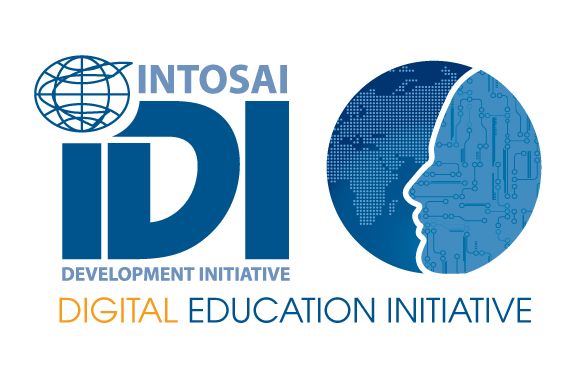
 Integrated Education And Audit Support Platforms
Integrated Education And Audit Support Platforms
Integrated Education and Audit Support platforms are mainly online platforms, which provide education and audit support throughout a cooperative audit. The platform has four elements – education contents (asynchronous units and synchronous classes), social learning (discussions forums, parking lots, cafes, webinars, audit question banks), other resources (library, audio and video links, and links to other courses) and audit support (feedback and support for each stage of the audit). These platforms are being used during the Audit of Strong & Resilient National Public Health Systems (linked to SDG 3.d) and the Pilot audit of nationally agreed targets linked to SDG 5.2 - elimination of intimate partner violence against women.
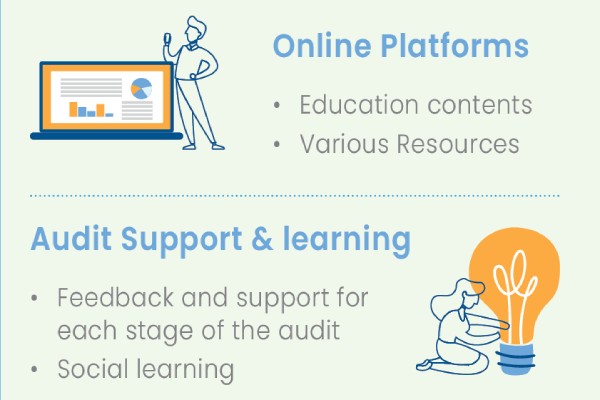
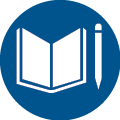 Hybrid And Multi-Lingual Online Events
Hybrid And Multi-Lingual Online Events
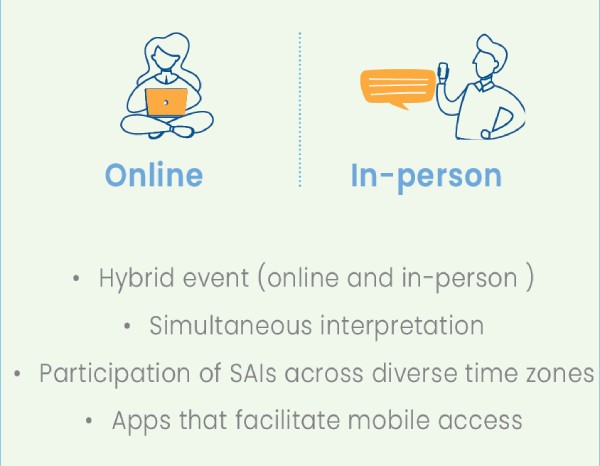
The switch to online events enables more partners to collaborate more frequently and more effectively. But it doesn’t solve the challenge of our diverse languages and time zones. As we moved our SAI Innovations initiative online in 2020, we began exploring solutions enabling simultaneous interpretation into multiple languages whilst enabling participation of SAIs across diverse time zones. In 2021 we will develop this further, and also hope to explore hosting a hybrid (online and in-person) event to enable us to provide more inclusive opportunities for knowledge sharing. We will explore apps that facilitate mobile access to our Learning Management System and run a series on ‹healthy interactions› to build SAI capacity to design and deliver online facilitation. In future, a combination of online, face to face and hybrid activities will allow all SAIs the opportunity to participate in SAI innovations.
 A Sai Pmf App?
A Sai Pmf App?
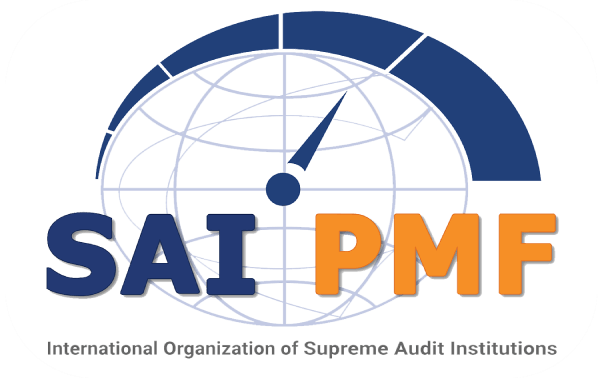

Continually Improving IDI
Accountability and Learning
Balancing Accountability and Learning
Evaluation plays a crucial role in helping IDI to move forward, and to remain accountable to its stakeholders, especially SAIs and development partners. In 2020 IDI finalised and published its evaluation policy, upholding international evaluation principles and standards. Following IDI’s rolling evaluation plan, in 2021 IDI and the INTOSAI Capacity Building Committee will commission an independent evaluation of implementation of the SAI PMF strategy. SECO (Switzerland) will conduct an interim evaluation of the SPMR initiative, and IDI will design and launch the independent mid-term evaluation of implementation of the IDI Strategic Plan 2019-23. Results from the latter will be used by IDI and the IDI Board in 2022 to inform development of the next IDI Strategic Plan.
Becoming a more gender responsive IDI
IDI has committed to fully integrate a gender perspective in its organisation and work in the IDI Strategic Plan.
The new IDI Gender Strategy provides more detailed strategic directions for IDI’s engagement and commitment on gender issues.
One strategic priority is to support SAIs in becoming more gender-responsive organisations and to conduct audits that contribute to gender equality. Leading by example as an organisation itself is the second strategic priority. Walking the talk and being credible and inspirational is the foundation for IDI’s advocating and influencing role vis-à-vis SAIs and the INTOSAI community.
In 2021, IDI will continue working towards being a genderresponsive organisation. Here are two examples of how IDI plans to deliver:
- Developing human resources, expertise and competence: IDI will continue its path towards building gender balanced human resources, gender expertise and competence and will closely work together with IDI’s human resources.
- Making gender a part of IDI’s routine by better integrating gender equality in IDI governance, decision-making and communications. This is a journey for everyone in IDI. A planned update of the IDI Gender Policy in 2021 will once again involve all IDI staff and put necessary gender measures on the agenda.

Financial Position
The financial situation of IDI remains sound. Total income for 2021 is estimated at NOK 114,5 Million with expenditures of NOK 96.1 Million.
The income amount includes balances of NOK 26,4 Million from 2020 assumed to be carried forward in full. The support from donors has been strong throughout 2020 with positive discussion around existing agreements where activities have been either cancelled or delayed. Plans for 2021 under the new normal include increase of staff due to new projects, scaled up support locally and delivering on new platforms. The increase in the 2021 budget compared to earlier years as shown in the graph below assume significant travel activity from July 2021 onwards. IDI’s strategic plan supports a gradual increase in capacity and resources in line with growing demand for support. IDI will monitor the expenses carefully, balance it against available funding and take necessary action to reduce the scope of activities if needed.
IDI Expenditure 2019-2021 (in Million NOK)
Appendices
Download our detailed Operational Plans for our six strategic priorities, and IDI’s Corporate and Cross-Cutting Issues, here.
- Independent SAIs Work Stream
- Well-Governed SAIs Work Stream
- Professional SAIs Work Stream
- Relevant SAIs Work Stream
- Bilateral Support
- Global Foundations
- IDI Corporate and Cross-Cutting Issues
Appreciation for our partners
IDI wishes to thank all our partner organisations for their financial, in-kind and strategic support.
Core Funding Partners
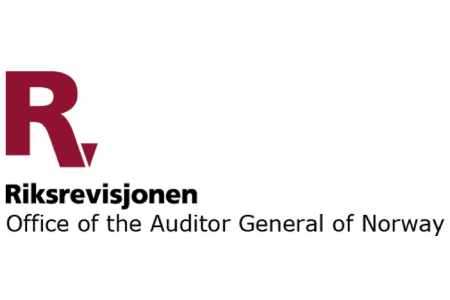
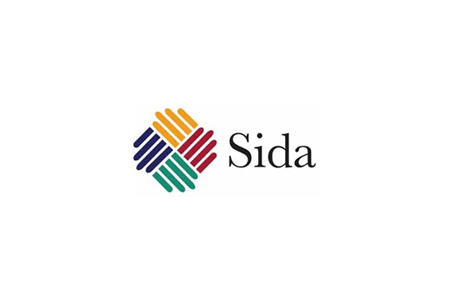
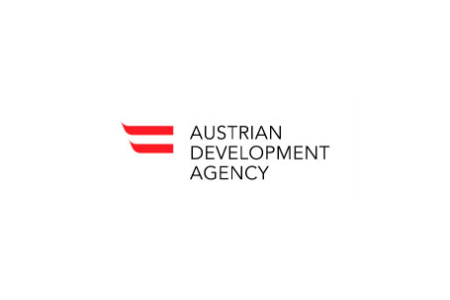
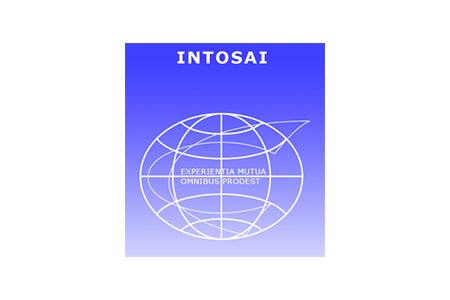

Earmarked Funding Partners

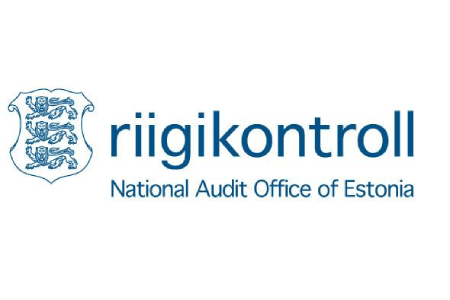
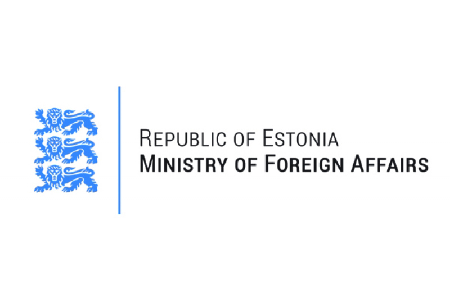
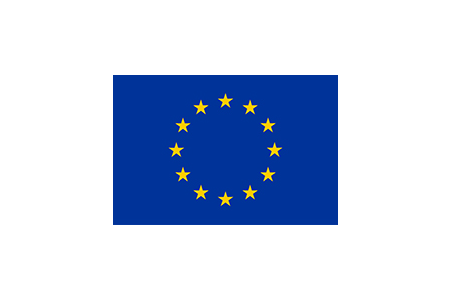

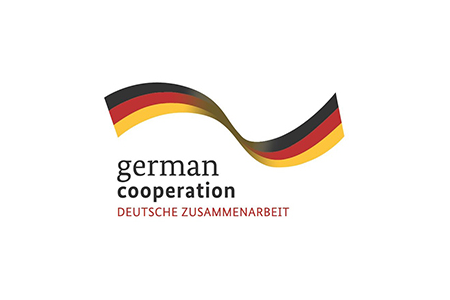


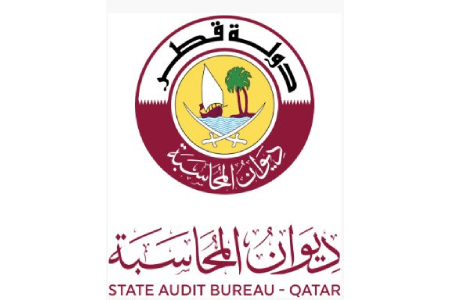
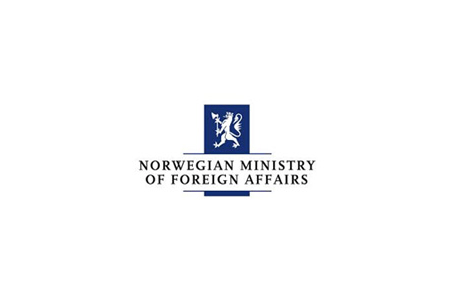
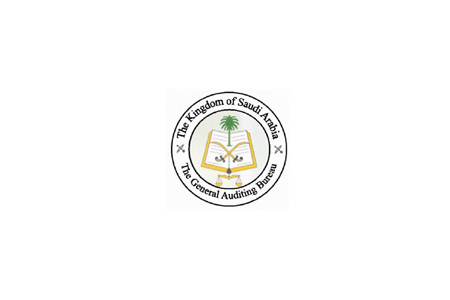
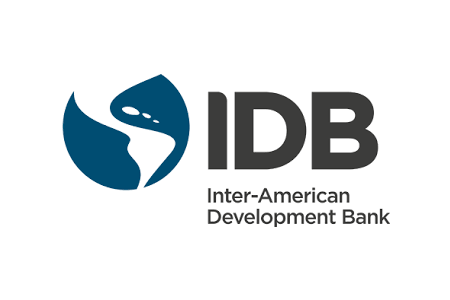
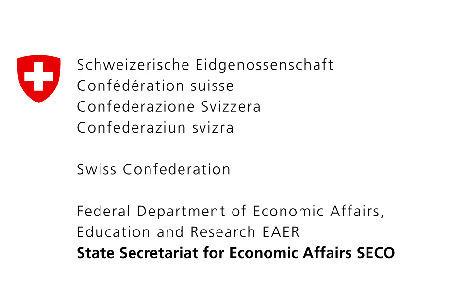
International SAI Community
-
The International SAI Community has agreed on a shared vision and set of strategic priorities as set down in the INTOSAI Strategic Plan 2017-22. IDI partners with INTOSAI bodies to support delivery of the INTOSAI plan, as well as the IDI Strategic Plan. This includes the INTOSAI Governing Board, General Secretariat, Policy, Finance and Administration Committee, Capacity Building Committee, Knowledge Sharing Committee and Professional Standards Committee (including its Financial Audit and Accounting, Performance Audit and Compliance Audit sub-committees).
-
IDI also works in close cooperation with all the regional SAI organisations: AFROSAI, ARABOSAI, ASOSAI, CAROSAI, EUROSAI, OLACEFS and PASAI, and the subregions AFROSAI-E, CREFIAF and ASEANSAI. The regions provide a crucial link between IDI’s global perspective, and the specific strengths, challenges and needs of their member SAIs. The regional and sub-regional bodies are key partners for the delivery of all IDI initiatives.
Other Strategic Partners
-
IDI’s Global Foundations Unit continues to support and help coordinate the work of the INTOSAI-Donor Cooperation
-
IDI and the International Budget Partnership work together under a Strategic Partnership Agreement to advocate for and strengthen engagement between SAIs and Civil Society Organisations
-
IDI and the IMF are working together, and supporting each other’s initiatives, on strengthening the audit of the use of COVID-19 emergency funding
-
IDI is increasingly engaging with UN Women to support SAIs to include a stronger gender equality focus in their audit activities
-
IDI has signed agreements with the SAIs of Finland and Indonesia, who provide dedicated human resources to IDI as in-kind support across several work streams
